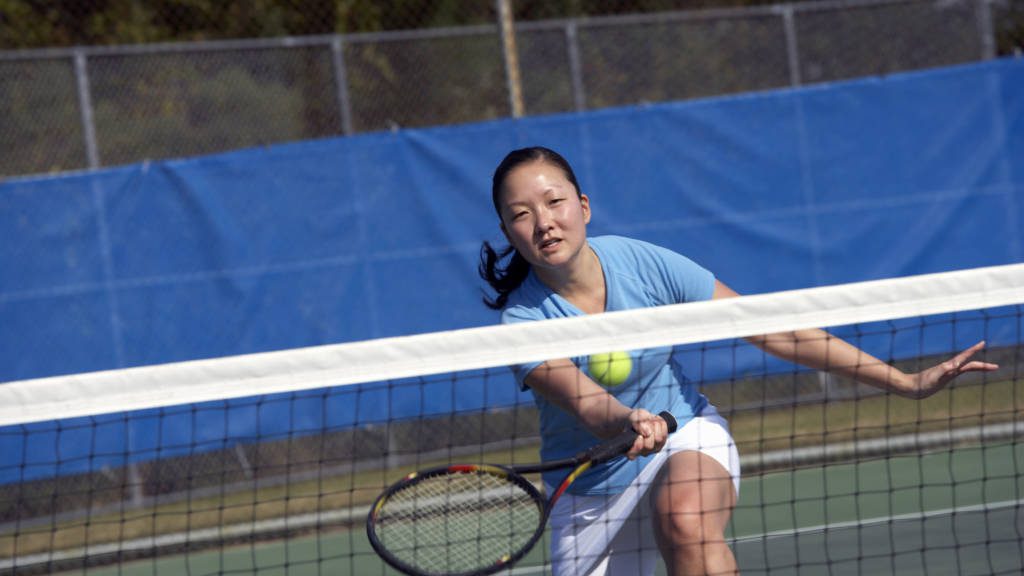Playing sports at the college level is a dream for many high school athletes.
While there is value in playing collegiate sports, there are other considerations an aspiring college athlete should factor into their decision. Here, students share the benefits and the challenges of playing sports in college.
Pro: You’ll Have an Instant Community
Playing a sport gives you a community as soon as you step on campus. This can be helpful as you transition to an unfamiliar environment—and that initial community can last throughout your four years. Jon P., a Harvard University graduate played tennis in college and says, “I built incredible friendships, not just because we spent so much time together in practice and competition, but because we were engaged in a mutual goal.”
For Jasmine J., a basketball player who graduated from St. Mary’s College of Maryland, the connection to her teammates was instant and lasted well beyond her four years of college. Even before finalizing her commitment to St. Mary’s, she met her potential teammates. “As soon as I got to campus,” Jasmine recounts, “a member of the team I met during the recruitment process became one of my closest friends—like a big sister to me in so many ways.” To this day, Jasmine says, “I have bonds from basketball I wouldn’t trade for anything.”
Con: You Won’t Have a Lot of Free Time
A daily or near-daily roster of practices, workouts, meetings, games, and travel puts pressure on student athletes in terms of their academic schedule and course load and can even influence what major they pursue. Jasmine recalls feeling as if some of her professors thought less of her whenever she had to miss class or reschedule an exam while traveling for away games.
For Jon the demanding sports schedule actually forced him to be more focused and organized with his academics. “I never would have been as diligent, engaged, and prepared if I hadn’t had sports in my life,” he says.
Pro: You’ll Have Plenty of Networking Opportunities
Jamie S., a softball player who graduated from Delaware Valley University, says she “woke up one day and decided I wanted to be a coach.” And her sports community wasted no time helping her pursue that goal. The school’s athletic director set up several meetings for Jamie with the school’s Center for Student Professional Development and the Athletic Director, who helped her find internships. Other coaches on campus were also eager to meet with her and share their experiences and contacts. “I talked with anyone who had ‘coach’ in their title to learn more about their role. Hearing how much they loved their work helped confirm that coaching softball would be the right path for me,” she says.
Similarly, Jon found the benefit of an extended network after graduation when he met a high-profile health professional at a Harvard Varsity Club event. “Knowing that I had been a Harvard athlete, he took an interest in me and my business,” Jon explains. “He offered advice that brought our branding strategy and outreach to the next level.”
“Being a college athlete is incredible for your professional network because you have a second level of connection with somebody who went to your school,” Jon says. “You also have the ability to network with other athlete alumni from your school, who will take a greater interest in you and may offer more useful assistance with your career.”
Con: You Might Be Unable to Pursue Other Extracurricular Activities
Committing to college athletics means going all in on one thing—which can mean sacrificing the opportunity to explore other aspects of campus life. “It was sometimes difficult to know my classmates had the free time to do other things that I couldn’t,” Jasmine says. She wasn’t able to attend certain study groups, participate in Greek life, or join clubs on campus. Jasmine also had the occasional 4 a.m. wake-up call for early morning practices, which definitely put a damper on her evening social activities.
Pro: You Have Skills to Add to Your Résumé
“Playing a college sport forces you to stay disciplined in school and stay on top of your work, because you want to be fully present in practice and competition,” says Jon Hiring managers often look for participation in activities that foster leadership, teamwork, perseverance, and confidence. Sports are known for cultivating those attributes.
Bottom line: Playing college sports can be intense. Even if you’re not playing on a Division I team, a college sport demands a lot of time, energy, and commitment that you may not have experienced at the high school level. If you’re considering opting into the world of college sports, the right decision starts with doing your research by talking to current and former members of the team and clarifying your college priorities.




